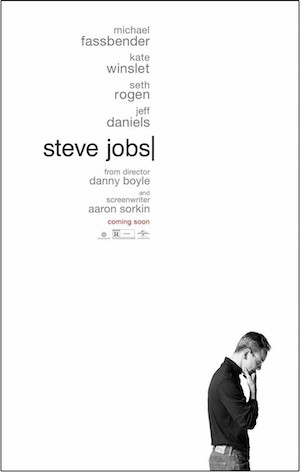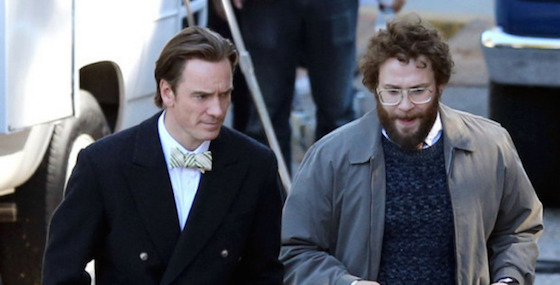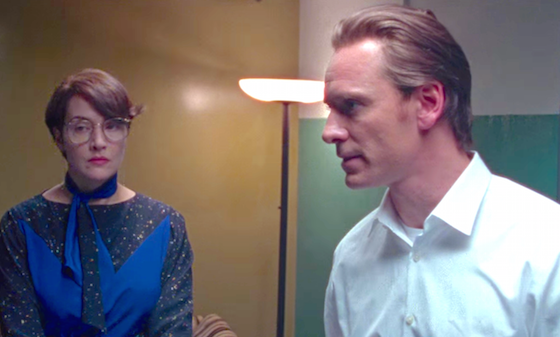 [Rating: Minor Rock Fist Down]
[Rating: Minor Rock Fist Down]
Aaron Sorkin returns to Silicon Valley this time with director Danny Boyle for Steve Jobs, a movie that is less a biopic and more a collection of three one-act plays that are less concerned with the man and more concerned with perpetuating the legend of the magnetic, charismatic, dreamer who founded Apple and revolutionized computing.
Or it’s about fatherhood. Or reinventing yourself. Or coping with being adopted. Or what makes a Great Man great.
Steve Jobs is a lot of things, but unlike the man, the movie isn’t particularly focused on any one thing. During its 2-hour runtime, the movie struggles to form a cohesive, inter-connected narrative. Each one-act play ends, we’re treated to a montage of everything that would have been compelling to see unfold in front of us and then we start the next act.
It’s all incredibly theatrical (hence referring to the film as a one-act play) with the characters moving around a handful of sets, bantering in that patented Sorkin® cadence, making dramatic statements and explosive accusations and revelations. Expository lines such as “SHE’S NOT MY DAUGHTER” are more fitting for a soap opera, but here we are watching Academy Award winners and nominees have these exchanges decked out in double-breasted navy blazers and giant teardrop glasses.
Michael Fassbender plays the titular role of Jobs and is unsurprisingly the best thing about Steve Jobs. It’s too early to predict whether he’ll be nominated for anything, but it wouldn’t be a surprise. Fassbender manages to be electric despite a script that would rather tell than show. Like the man he plays, Fassbender is magnetic and not just because he’s in nearly every scene.
Kate Winslet has less to do, but still manages to breath some personality into her character Joanna Hoffman, Jobs’ long-suffering colleague and confidant that followed him from Apple to Next and back again. At best she is wry and funny and the emotional lynchpin of the movie. At worst, she’s the surrogate audience guide, recapping the story, summing up where we are and telling us how we should feel.
The biggest no-show in Steve Jobs is its director. Boyle gets great performances out of Fassbender and Winslet, but since they’re two of the greatest actors alive, he probably didn’t have to kill himself getting good material from them. But his personality and his style are all but absent from the proceedings.
Maybe his intent was to give the actors room to act and make the film entirely performance-focused, but whatever the intent, what we’re left with is a slogging piece of fiction that is too busy worrying about on-the-nose dialog and wedging in phrases the main character coined throughout his career to craft a compelling narrative. If you’ve been a Sorkin fan, you know what you’re in for here. If you’re looking for any insight or context into a man that is responsible for the home computer revolution, you should probably look elsewhere.






Comments on this entry are closed.